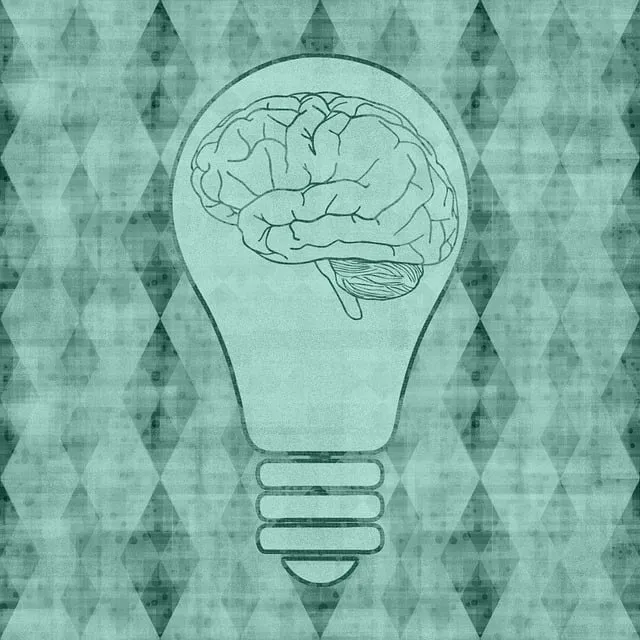The Centennial Kaiser Permanente Mental Health Access Center focuses on building resilience as a cornerstone of mental wellness promotion using the RFM (Resilience, Flexibility, Mastery) framework. They offer structured approaches, integrated into podcasts and emotional well-being techniques, to enhance adaptability and coping mechanisms. Their holistic methodology includes crisis intervention, mood management, self-care routine development, and mindfulness practices, all tailored to individual needs. Personalized RFM programs address diverse populations' unique challenges, reducing stigma and fostering resilience. The center employs multifaceted evaluation methods to track improvements in self-esteem and Mind Over Matter principle application through pre- and post-training surveys.
“Resilience is a powerful tool in mental health support, and the Centennial Kaiser Permanente Mental Health Access Center has pioneered innovative practices in this domain. This article explores RFM (Resilience, Flexibility, and Mastery), a comprehensive framework that enhances coping mechanisms. We delve into how the Kaiser Center integrates resilience-building exercises into clinical settings, offering personalized approaches for diverse populations. By examining case studies and evaluation methods, we uncover the impact of tailored RFM programs, providing insights into improving mental well-being on a grand scale.”
- Understanding RFM: A Framework for Resilience in Mental Health
- The Centennial Kaiser Permanente Mental Health Access Center: A Center of Excellence
- Integrating Resilience Building Exercises into Clinical Practice
- Tailoring RFM to Individual Needs and Populations
- Measuring Success: Evaluating the Impact of Resilience Training
Understanding RFM: A Framework for Resilience in Mental Health

At Centennial Kaiser Permanente mental health access center, we recognize that building resilience is a cornerstone of fostering mental wellness.
Resilience, the ability to adapt and bounce back from adversity, is crucial for navigating life’s challenges. The RFM (Resourceful, Flexible, Mobile) framework provides a structured approach to enhancing this adaptability. By focusing on three key dimensions—Resources, Flexibility, and Mobility—individuals can develop the coping mechanisms needed to thrive despite stressors. This holistic method, often integrated into the Mental Wellness Podcast Series Production and Emotional Well-being Promotion Techniques, equips individuals with tools to navigate difficult situations, ultimately leading to enhanced mental wellness and improved life satisfaction. Furthermore, our Mental Wellness Coaching Programs Development leverages RFM principles to empower individuals to take control of their emotional well-being.
The Centennial Kaiser Permanente Mental Health Access Center: A Center of Excellence

The Centennial Kaiser Permanente Mental Health Access Center stands as a beacon of hope and excellence in the field of mental well-being. This center, dedicated to enhancing the community’s mental health landscape, offers a comprehensive range of services designed to cater to diverse needs. With a team of highly skilled professionals, it provides state-of-the-art care, ensuring individuals receive tailored support for their unique challenges.
Here, patients can access innovative treatments, including crisis intervention guidance, mood management strategies, and personalized programs for self-care routine development. The center’s holistic approach fosters resilience building exercises, empowering individuals to navigate life’s stressors effectively. By embracing cutting-edge research and evidence-based practices, Centennial Kaiser Permanente Mental Health Access Center sets the standard for exceptional mental health care, contributing significantly to a healthier and more resilient community.
Integrating Resilience Building Exercises into Clinical Practice

At the Centennial Kaiser Permanente Mental Health Access Center, integrating resilience-building exercises into clinical practice has become a cornerstone of their approach to patient care. These exercises, designed to enhance emotional well-being promotion techniques and stress reduction methods, are tailored to meet the unique needs of each individual. By incorporating conflict resolution techniques and fostering a safe space for expression, therapists enable patients to develop coping mechanisms that are both effective and sustainable.
The center recognizes that building resilience is not just about managing stress but also about cultivating skills to navigate life’s challenges. Through a variety of exercises, from mindfulness practices to cognitive reframing, patients learn to approach difficult situations with greater equanimity. This holistic integration ensures that the tools acquired in therapy extend far beyond the walls of the access center, empowering individuals to thrive even in the face of adversity.
Tailoring RFM to Individual Needs and Populations

At the Centennial Kaiser Permanente Mental Health Access Center, they recognize that every individual has unique needs and challenges when it comes to resilience-building. Therefore, they tailor their RFM (Resilience, Flexibility, and Mastery) programs to cater to diverse populations, ensuring comprehensive mental health support. This personalized approach is crucial in fostering emotional intelligence and boosting confidence, especially for those facing stigma associated with mental illness.
By adapting RFM exercises, the center aims to reduce the impact of stigma and create a safe space where participants can develop essential skills to navigate life’s challenges. These tailored sessions consider cultural backgrounds, personal experiences, and specific mental health concerns, allowing for more effective Mental Illness Stigma Reduction Efforts. This inclusive strategy empowers individuals to build resilience and enhance their overall well-being.
Measuring Success: Evaluating the Impact of Resilience Training

Measuring success in resilience training is a multifaceted endeavor, especially when considering the profound impact it can have on individuals’ mental health and overall well-being. At the Centennial Kaiser Permanente Mental Health Access Center, we employ various evaluation methods to assess the effectiveness of our programs, ensuring that every participant reaps the intended benefits.
One key approach involves tracking improvements in self-esteem and the application of Mind Over Matter principles. By regularly surveying participants before and after training, we gauge their ability to cope with stress, navigate challenges, and maintain a positive outlook—all hallmarks of enhanced resilience. This data provides valuable insights into the program’s success, guiding us to refine our Trauma Support Services and tailor them to meet the unique needs of each individual.
The Centennial Kaiser Permanente Mental Health Access Center serves as a beacon of hope and excellence in integrating RFM (Resilience, Flexibility, and Mastery) into clinical practice. By understanding the framework of RFM and tailoring resilience-building exercises to diverse populations, mental health professionals can empower individuals to navigate life’s challenges with enhanced coping mechanisms. The center’s innovative approach, supported by robust evaluation methods, ensures that resilience training measures success, fostering a more resilient and thriving community.






